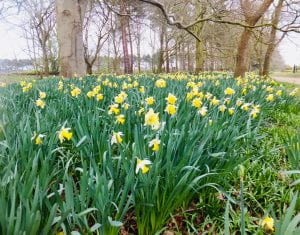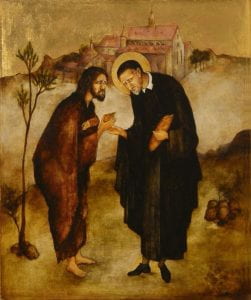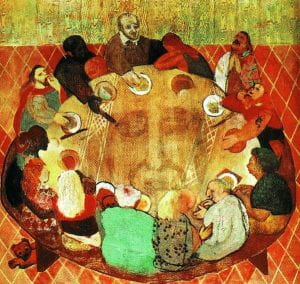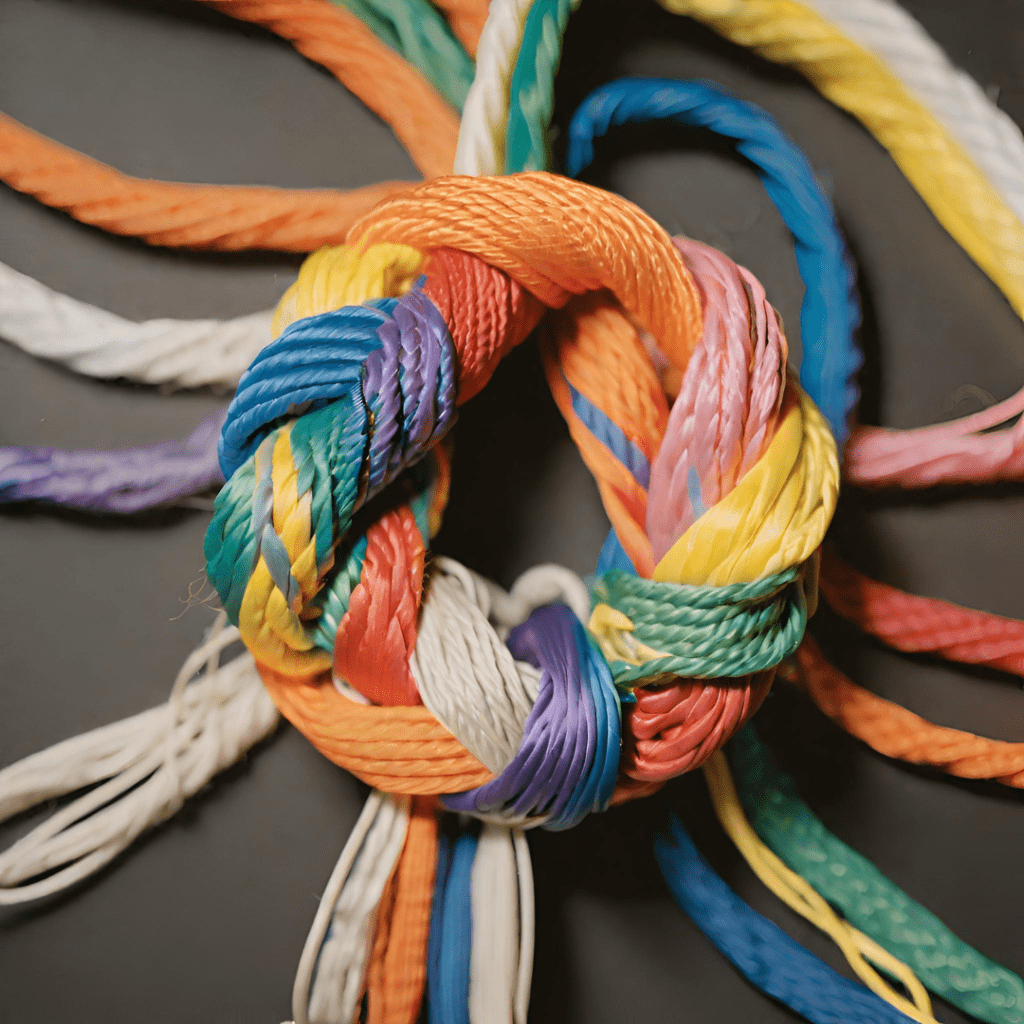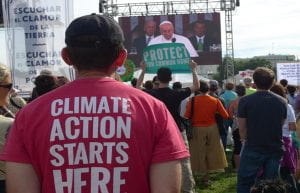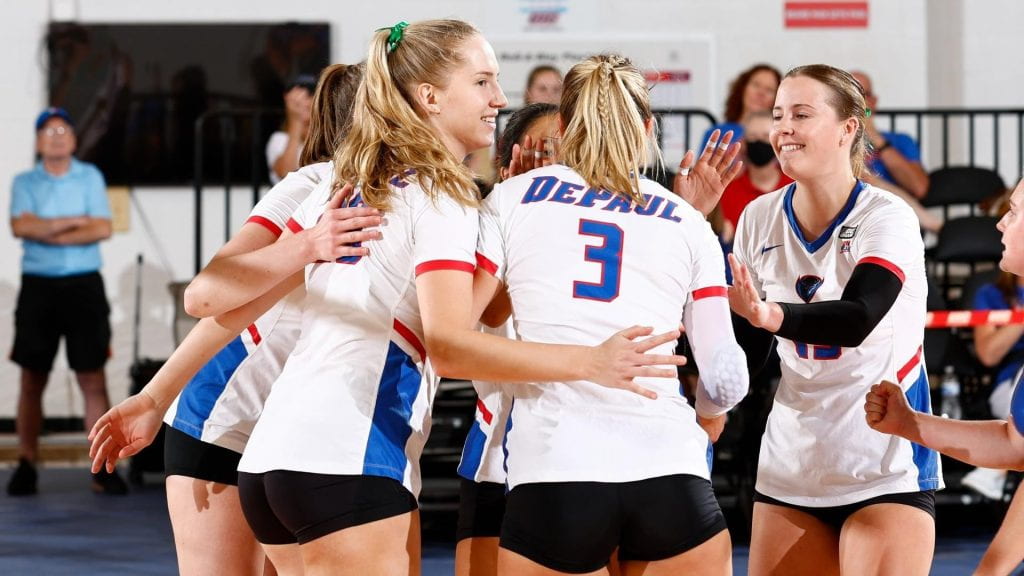
In sacred texts and in artistic narrative of all types, I have long been struck by the role and nature of dreams and visions. [1] We refer to what we experience while asleep as “dreams,” but we also refer to the conscious visions and hopes we have for the future with the same word. [2] In other languages or cultural discourse this overlap is intensified in that the same word can refer to visions which occur while asleep, awake, or somewhere in-between. In Muslim tradition this can be captured by (among others) the Arabic word ru’ya. In the Irish language and literary tradition there is the concept of the aisling [3] Whether drawing from the conscious, the subconscious, or from some combination of the two, these are ways in which our imagination grapples with envisioning a future different than the present. In many spiritual traditions, these visions are understood to be forms of communication with the Divine, and to reflect realities which are deeper than those of the material world alone. [4] A most famous example of this in our Vincentian tradition is the lumière experience of Saint Louise de Marillac. [5]
In the recently published Night Flyer: Harriet Tubman and the Faith Dreams of a Free People, Tiya Miles writes movingly about the dream visions of the famous abolitionist and activist. [6] Drawing from the historical evidence we have about Tubman’s visions and attempting to understand them in the context of her life experiences and worldview, Miles traces the evolution of those dreams. Starting from nightmarish visions of being chased by white men on horseback, which communicated to her the notion that she must prepare to get away, the visions did not stop. They eventually would include a vision of a ‘promised land’ to which she should flee, although for a long time she would often not make it. Finally, Tubman had dreams of being a bird flying above the landscape, being assisted to make it across the boundary by angelic figures dressed in white. Tubman understood these to be divine directives and promises of support, both human and otherworldly, in her tasks of pursuing liberation for herself and for others.
The Prophet Muhammad [7] also said that his experiences of revelation began in dreams. Often after the dawn prayer, he would ask his companions if any of them had seen a good dream. This is undoubtedly a very intimate form of sharing, to share our dreams in whatever sense of the word, with others. In that sense it is like sincerely praying for others. Such intimacy requires great trust. In one narration, the Prophet said that precious good dreams should only be shared with those “whom one loves.” [8] As a community with a shared vision of the future, one which has room for the dreams of many different and diverse individuals, we might find these a powerful inspiration in times of trial and difficulty.
The poet William Butler Yeats noted, “In Dreams Begin Responsibility.” [9] As we see with Louise, and with Harriet Tubman, having a dream was not a substitute for hard and uncomfortable work. Rather, a dream was what provided the inspiration and faith to engage in such work. As we begin a new year in a world always filled with great brokenness and with great potential for good, let us renew our connection to what inspires us and gives us hope. Let us renew our connections with this community.
For Reflection:
What are your dreams (waking or sleeping) as we begin a new academic year? What inspires you or gives you the faith to do the things which are hard or uncomfortable in your work? What other roles might dreams or intuitions/feelings play in terms of guidance?
Reflection by: Abdul–Malik Ryan, Assistant Director, Religious Diversity and Pastoral Care.
[1] I also referred to this in a previous reflection: https://blogs.depaul.edu/dmm/2023/02/07/busy-persons-retreat-day-two-tuesday-february-7/.
[2] Such as when DePaul’s athletics department encourages us to “Dream Big,” see: https://depaulbluedemons.com/feature/strategic-plan.
[3] For more on this see: https://en.wikipedia.org/wiki/Aisling.
[4] Perhaps most famously in the story of Joseph, the son of Jacob (peace be upon him) in Genesis, and in the Qur’an.
[5] Earlier this year, Abigail Rampone shared this reflection on Louise’s lumière experience: https://blogs.depaul.edu/dmm/2024/05/02/doubt-certainty-and-louises-lumiere/.
[6] For more on this new book, see: https://tiyamiles.com/books/night-flyer-harriet-tubman-and-the-faith-dreams-of-a-free-people/.
[7] Peace Be Upon Him and all the Prophets of God.
[8] 91 Interpretation of Dreams, Sunnah.com, at: https://sunnah.com/bukhari:7044.
[9] William Butler Yeats, “Responsibilities,” January 1914, see: https://sacred-texts.com/neu/yeats/lpy/lpy080.htm.

